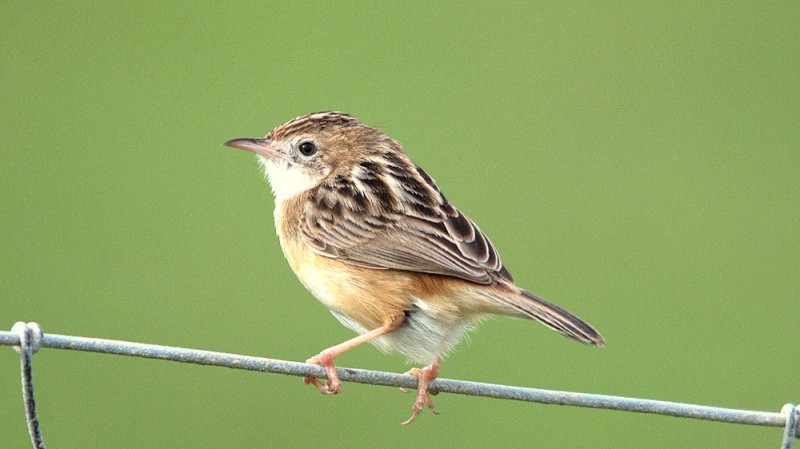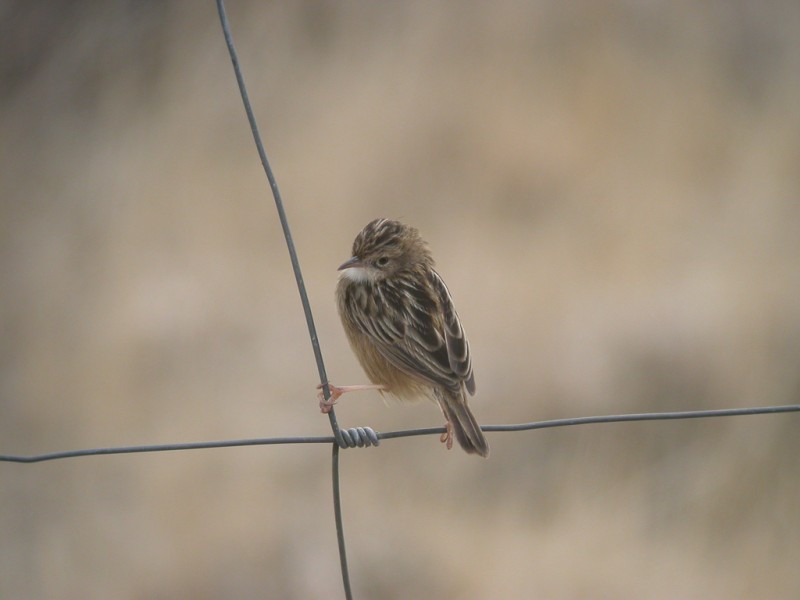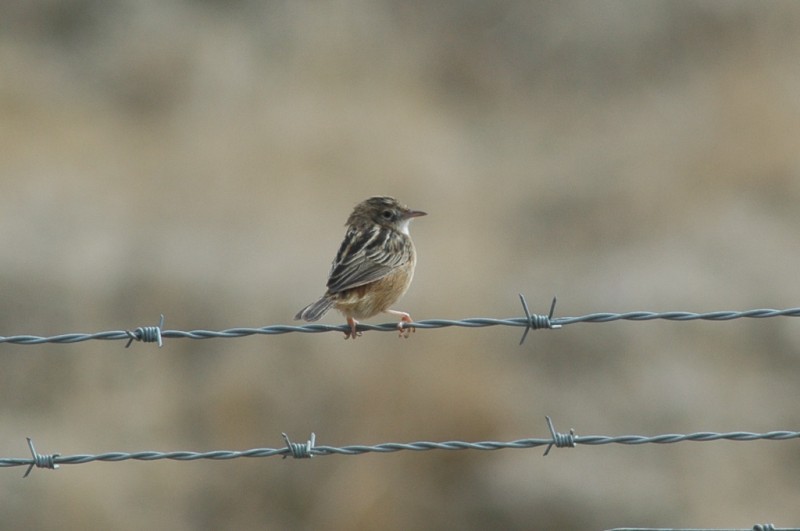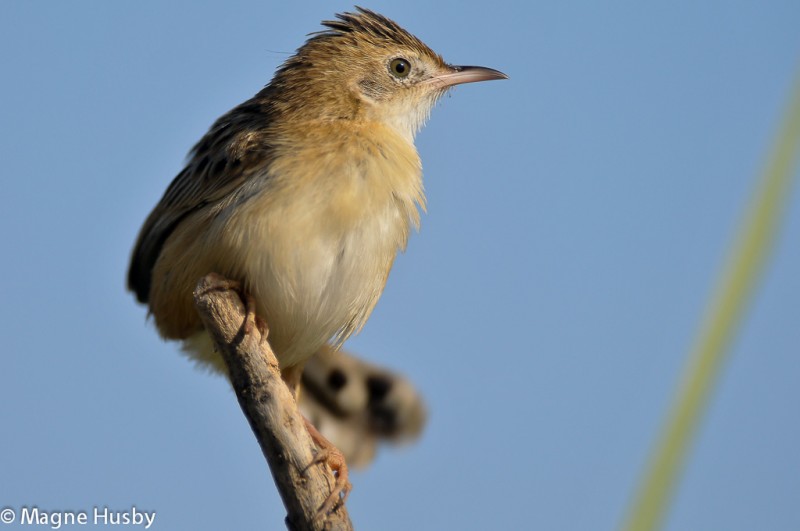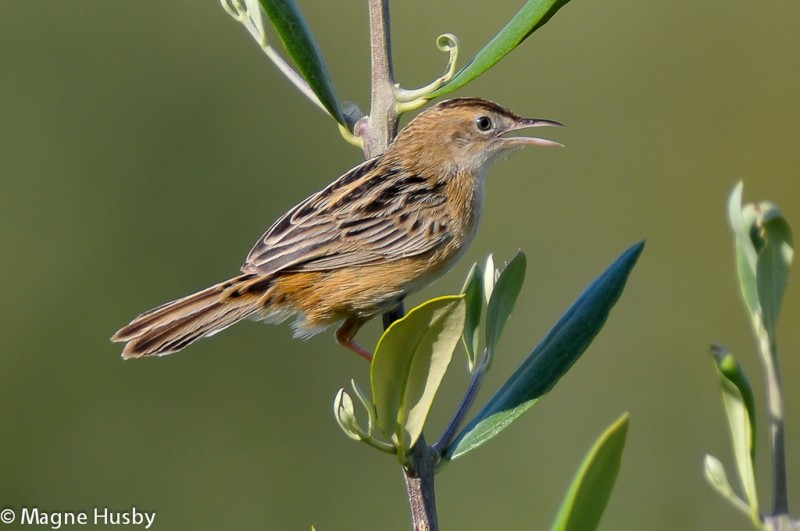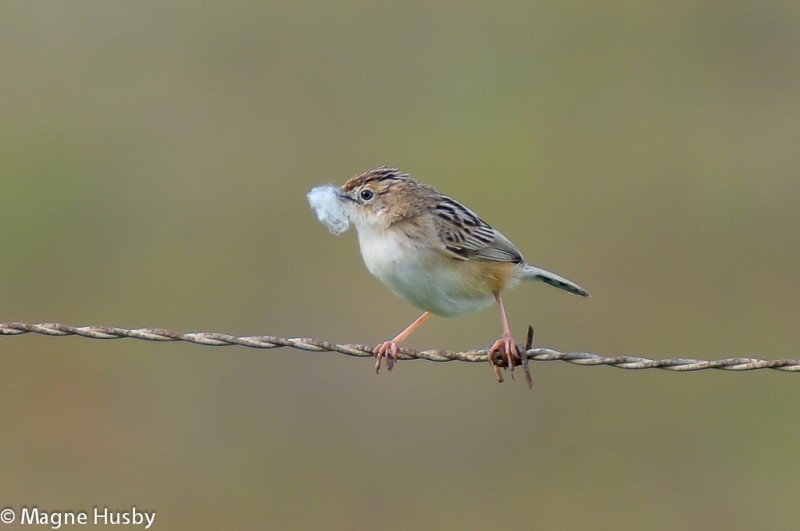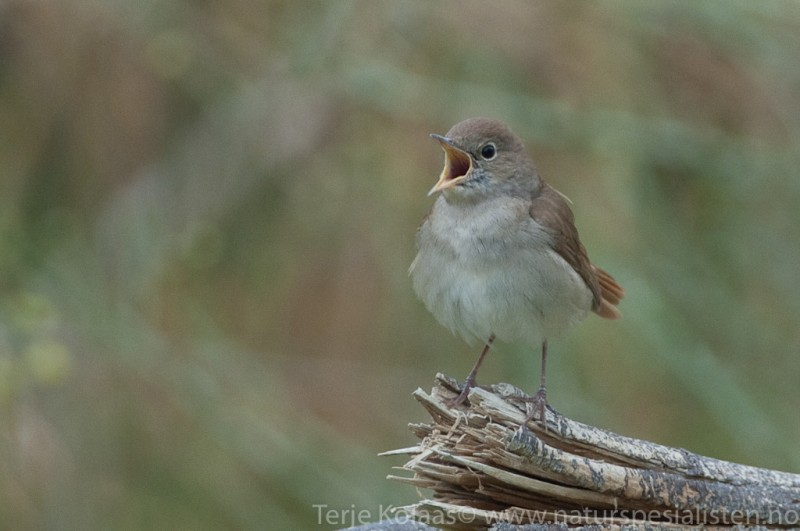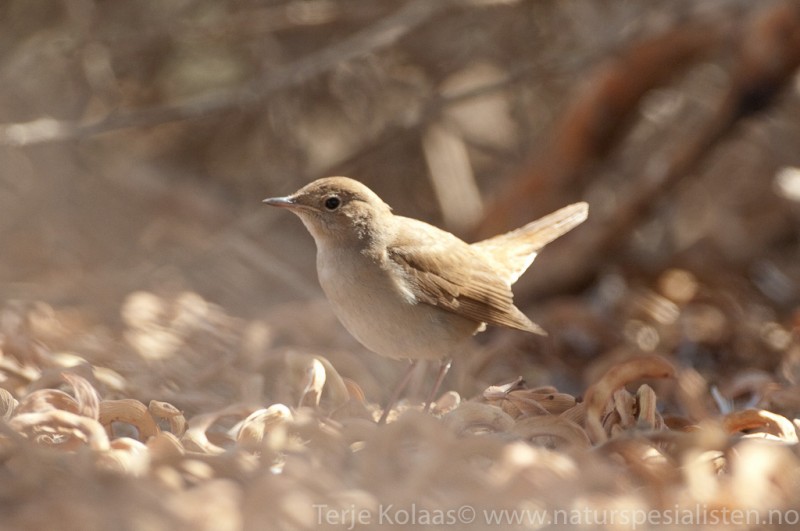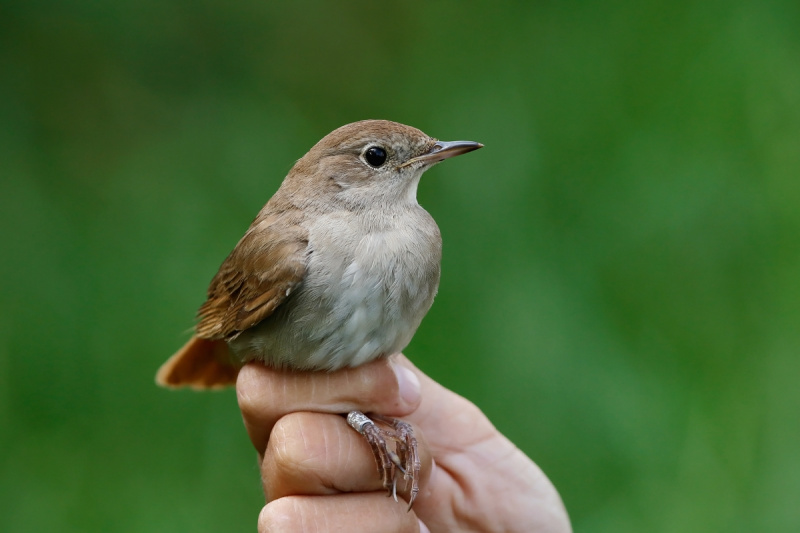Zitting Cisticola (Cisticola juncidis)
Nightingale (Luscinia megarhynchos)
Small, short winged warbler. Similar to Scrub Warbler (Scotocerca inquieta) and Graceful Warbler (Prinia gracilis), but both wings and tail much shorter. Tail fan-shaped with black and white tips. Heavily streaked back, buff underparts and pale throat and vent. Pale area around eye. Flight diagnostic, with whirring wings and short, slightly spread, fan-like tail. Song flight even more distinct, with long undulations synchronised with voice.
Sound:Male song a diagnostic, monosyllabic, high-pitched "cist", repeated in an even rhythm about once every second, while in bounding song-flight or perched. Alarm call a short, clipping "witt", repeated in series.
Song and alarm:
Distribution:
Xeno-canto: map
Ecology:Birdlife ecology
Links:CC
Very similar to Thrush Nightingale. Anonymous, indistinct plumage and secretive behaviour makes it an easily overlooked bird (except when singing). Tail rufous brown, upperparts warm brown. Underparts buff and white. Throat without streaking. Tail more rufous, and contrasts less with the warm brown back, than in Thrush Nightingale. Overall a more smooth and clean appearance. Thrush-like behaviour despite the small size, with jumping gait, erect posture, raised tail and drooping wings.
Sound:Alarm call either a thin, flycatcher-like "weeet", or a Chiff-chaff-like "piuu". Also a characteristic (but similar to Thrush Nighitingale) dry, rattling, frog-like "rrrrr". The song is the best characteristic to separate it from T. Nightingale. It consists of extremely resonant, full-bodied notes and lacks the, dry, rolling, rattling sounds of T.N. Most distinct species specific sound is the interwoven series of slightly ascending, plaintive notes (0.04 - 0.10 in recording). May mimic Thrush Nightningale!
Song:
Distribution:
Xeno-canto: map
Ecology:Birdlife ecology
Links:
Observation.org Latest observations
Image search Flickr NB! May give other species
CC
 English
English Albanian
Albanian
 Armenian
Armenian
 Bulgarian
Bulgarian
 Catalan
Catalan
 Croatian
Croatian
 Czech
Czech
 Danish
Danish
 Dutch
Dutch
 Finnish
Finnish
 French
French
 Georgian
Georgian
 German
German
 Greek
Greek
 Hungarian
Hungarian
 Italian
Italian
 Latvian
Latvian
 Lithuanian
Lithuanian
 Macedonian
Macedonian
 Norwegian
Norwegian
 Polish
Polish
 Portuguese
Portuguese
 Romanian
Romanian
 Russian
Russian
 Sami : Lule sami
Sami : Lule sami
 Sami : North sami
Sami : North sami
 Sami : South sami
Sami : South sami
 Scientific names
Scientific names
 Serbian
Serbian
 Spanish
Spanish
 Swedish
Swedish
 Ukrainian
Ukrainian


